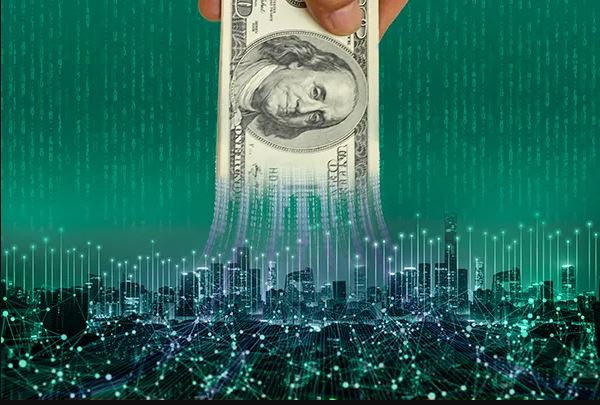A Glimpse into the Virtual World of Real Estate: How Tokenization is Shaping the Future of Property Investment
The real estate industry is undergoing a digital transformation, offering investors new ways to access property markets through cutting-edge technologies. One of the most promising innovations is real estate tokenization, a process that digitizes property ownership and makes it accessible to a broader range of investors. Industry experts, including renowned real estate mogul Grant Cardone, have taken notice of this trend, but while intrigued, Cardone remains cautious about its potential. In this article, we explore the landscape of tokenized real estate, examining its advantages, challenges, and its role in the future of property investment.
Grant Cardone’s Take on Tokenized Real Estate
Grant Cardone, affectionately known as “Uncle G,” is a self-made real estate billionaire who has long advocated for creating investment opportunities for everyday people. While he acknowledges the potential of tokenized real estate to democratize the market, Cardone admits that he has limited experience with this emerging digital framework. Despite his curiosity, he has expressed reservations about how his multi-billion-dollar real estate portfolio could be integrated into blockchain technology.
Cardone’s openness to learning about blockchain-based real estate highlights the growing interest in this sector among real estate veterans. As tokenization continues to develop, industry leaders are carefully weighing its potential against the complexities it introduces.
What is Tokenized Real Estate?
Tokenized real estate basically means the segmentation of property ownership into digital tokens, with each one representing fractional shares of the asset. Tokens are stored and traded on a blockchain, a secure, transparent digital ledger system. By holding a token, one holds a share of the profit and loss that comes out of the property, opening new dimensions of flexibility and accessibility to real estate investment.
Whereas in the case of traditional real estate transactions, a significant amount of capital is often required upfront, investors can buy smaller fractions of a property through tokenization. This potentially opens up a wide variety of participants who can invest in numerous types of real estate, ranging from residential apartments and commercial buildings to luxury and trophy properties.
Tokenized real estate is a new, innovative model for fractional ownership of property, making investment easier by increasing liquidity.
Benefits and Challenges of Tokenized Real Estate?
The main benefits derived from tokenized real estate are multifold, making it an investment vehicle of choice in the modern world:
Improved Liquidity: Traditional investment in real estate might be inelastic, with deals taking even months to close. Tokenization thus offers easier and smoother transactions whereby investors can buy and sell their tokens without much friction. Economies of Transaction Costs: Blockchain reduces the need for intermediaries, hence reducing transaction fees to make the process of transaction economical for buyers and sellers. Better accessibility: Tokenization lowers the barriers to entering real estate investments and, therefore, makes more people participate in it. This democratizing of real estate opens avenues that up to this time may not have existed for those who couldn’t afford to invest in such high-value properties.
Robust Security: In the nature of decentralization, blockchain provides robust security and transparency in the record of transactions, hence reducing the likelihood of fraud and clearly defining and protecting ownership rights.
However, despite these benefits, tokenized real estate faces significant challenges, particularly in the realm of regulation. Cardone has expressed concerns about the regulatory environment surrounding tokenized real estate, specifically the stringent requirements imposed by the U.S. Securities and Exchange Commission (SEC). Since real estate tokens are often classified as securities, they must comply with SEC registration, reporting, and disclosure rules, which can be complex and costly for investors and property owners alike.
Navigating the Regulatory Landscape
While regulatory hurdles remain a significant concern for the tokenized real estate industry, some experts believe that workable solutions are within reach. John Belitsky, co-founder of Balcony DAO, argues that the necessary frameworks already exist to ensure that tokenized real estate complies with current regulations. As more private equity firms and institutional investors explore this emerging space, the industry is expected to evolve in tandem with regulatory developments.
Tokenization presents a compelling future for real estate, but success in this space requires close attention to regulatory compliance, particularly as different jurisdictions impose varying rules for blockchain-based assets.
Building a Diversified Real Estate Portfolio: Traditional vs. Tokenized Approaches
For aspiring real estate investors, tokenization represents a revolutionary way to build a portfolio. However, traditional methods such as crowdfunding and partnerships with seasoned investors remain valuable avenues for growing wealth in real estate.
- Crowdfunding: Crowdfunding platforms allow individuals to pool their resources and invest in large-scale real estate projects. These platforms offer a way to gain exposure to real estate without the need for substantial capital.
- Partnerships with Experienced Investors: Partnering with experienced investors can provide valuable insights and reduce the risks associated with real estate ventures. Working with professionals in the field also enables new investors to learn the ropes of property management and investment strategies.
By combining traditional investment approaches with cutting-edge tokenization strategies, investors can build a diversified portfolio that balances risk and reward.
The Future of Real Estate Investment: Embracing Tokenization
The rise of tokenized real estate offers a glimpse into the future of property investment, where blockchain technology plays a pivotal role in reshaping the industry. As platforms like Blocksquare continue to innovate, and industry leaders like Grant Cardone explore its possibilities, tokenization is likely to become a mainstream option for real estate investors.
While regulatory challenges persist, the long-term benefits of enhanced liquidity, lower transaction costs, and broader accessibility make tokenized real estate a compelling option for those looking to diversify their portfolios. Investors who embrace this digital transformation stand to gain from a more transparent, efficient, and inclusive real estate market.


Leave a Reply